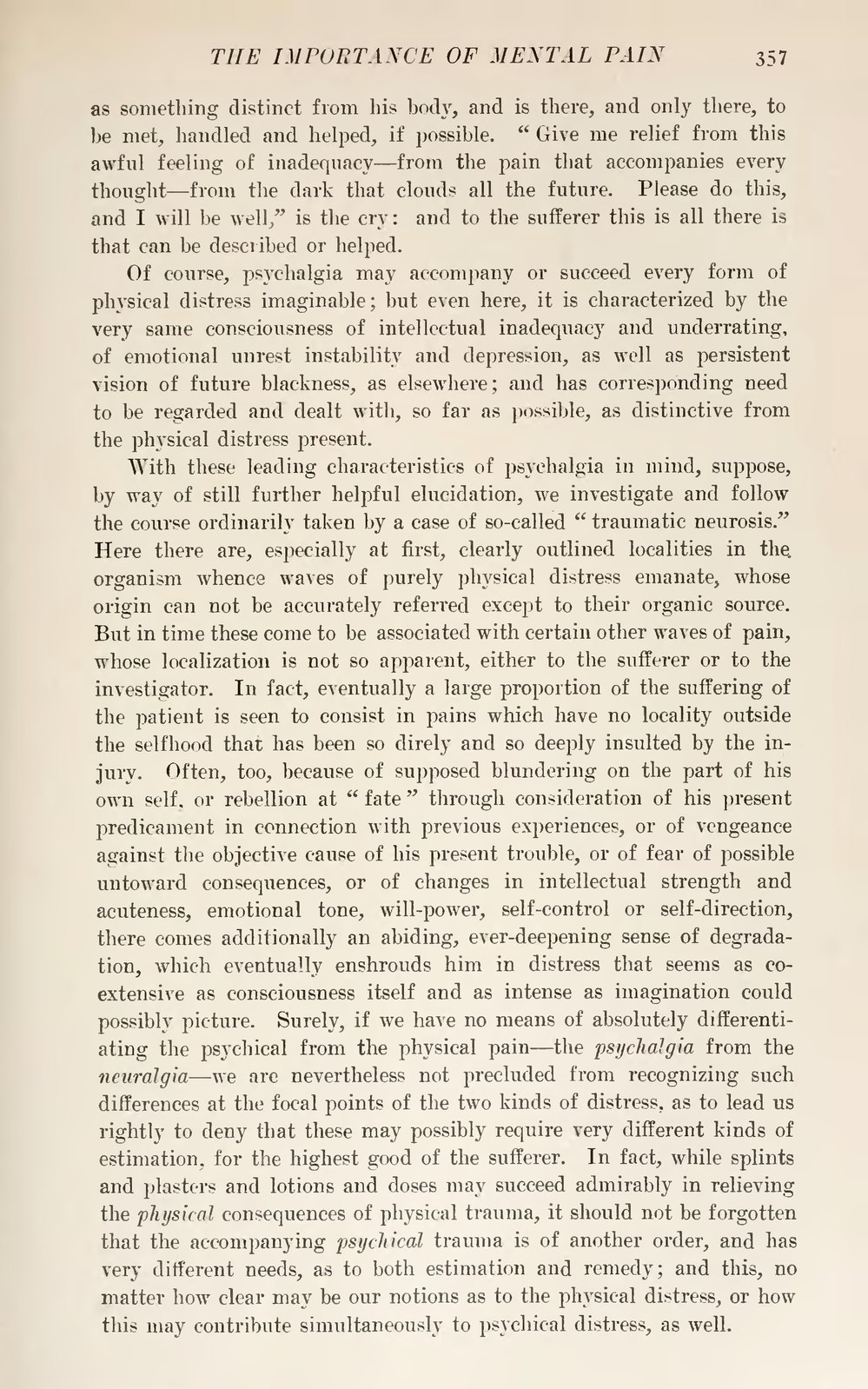as something distinct from his body, and is there, and only there, to be met, handled and helped, if possible. "Give me relief from this awful feeling of inadequacy—from the pain that accompanies every thought—from the dark that clouds all the future. Please do this, and I will be well," is the cry: and to the sufferer this is all there is that can be described or helped.
Of course, psychalgia may accompany or succeed every form of physical distress imaginable; but even here, it is characterized by the very same consciousness of intellectual inadequacy and underrating, of emotional unrest instability and depression, as well as persistent vision of future blackness, as elsewhere; and has corresponding need to be regarded and dealt with, so far as possible, as distinctive from the physical distress present.
With these leading characteristics of psychalgia in mind, suppose, by way of still further helpful elucidation, we investigate and follow the course ordinarily taken by a case of so-called "traumatic neurosis." Here there are, especially at first, clearly outlined localities in the. organism whence waves of purely physical distress emanate, whose origin can not be accurately referred except to their organic source. But in time these come to be associated with certain other waves of pain, whose localization is not so apparent, either to the sufferer or to the investigator. In fact, eventually a large proportion of the suffering of the patient is seen to consist in pains which have no locality outside the selfhood that has been so direly and so deeply insulted by the injury. Often, too, because of supposed blundering on the part of his own self, or rebellion at "fate" through consideration of his present predicament in connection with previous experiences, or of vengeance against the objective cause of his present trouble, or of fear of possible untoward consequences, or of changes in intellectual strength and acuteness, emotional tone, will-power, self-control or self-direction, there comes additionally an abiding, ever-deepening sense of degradation, which eventually enshrouds him in distress that seems as coextensive as consciousness itself and as intense as imagination could possibly picture. Surely, if we have no means of absolutely differentiating the psychical from the physical pain—the psychalgia from the neuralgia—we are nevertheless not precluded from recognizing such differences at the focal points of the two kinds of distress, as to lead us rightly to deny that these may possibly require very different kinds of estimation, for the highest good of the sufferer. In fact, while splints and plasters and lotions and doses may succeed admirably in relieving the physical consequences of physical trauma, it should not be forgotten that the accompanying psychical trauma is of another order, and has very different needs, as to both estimation and remedy; and this, no matter how clear may be our notions as to the physical distress, or how this may contribute simultaneously to psychical distress, as well.
